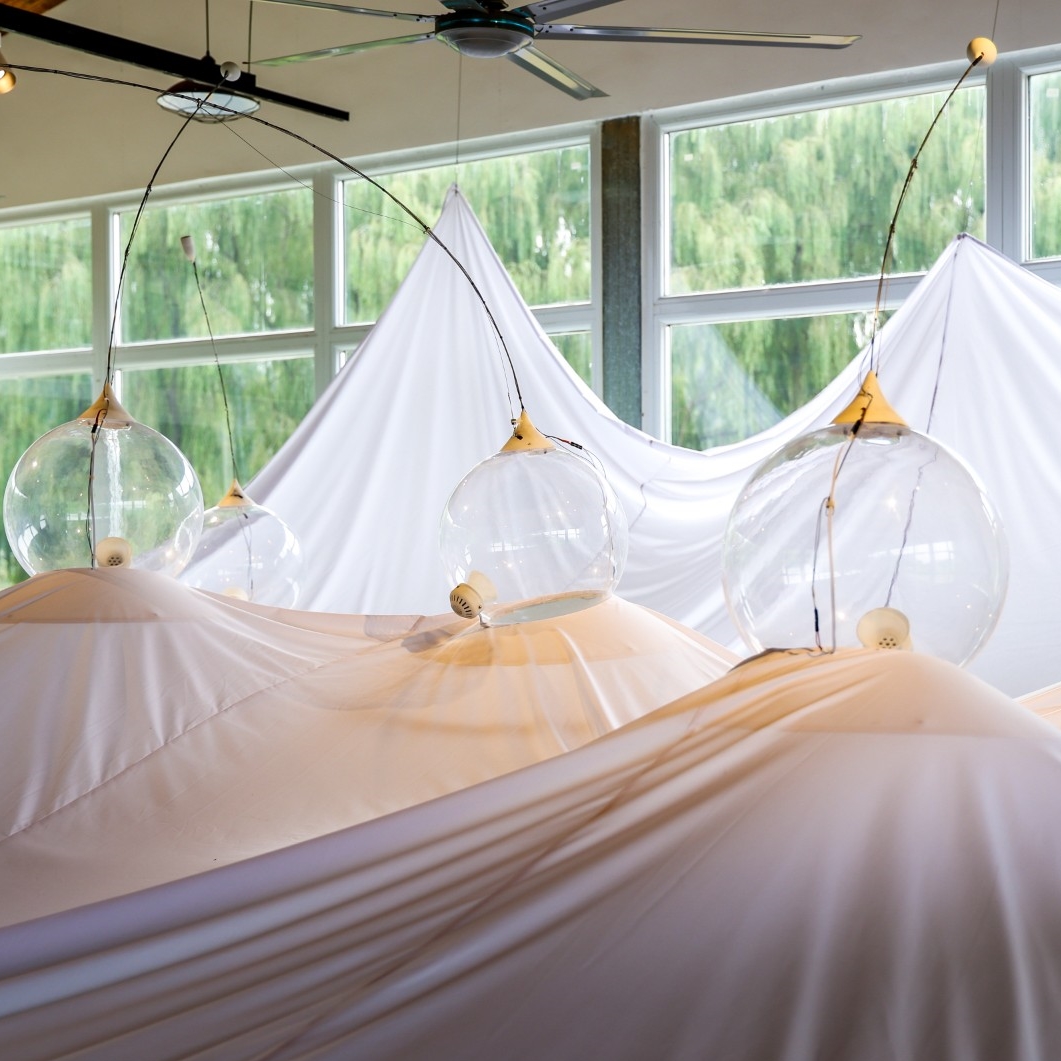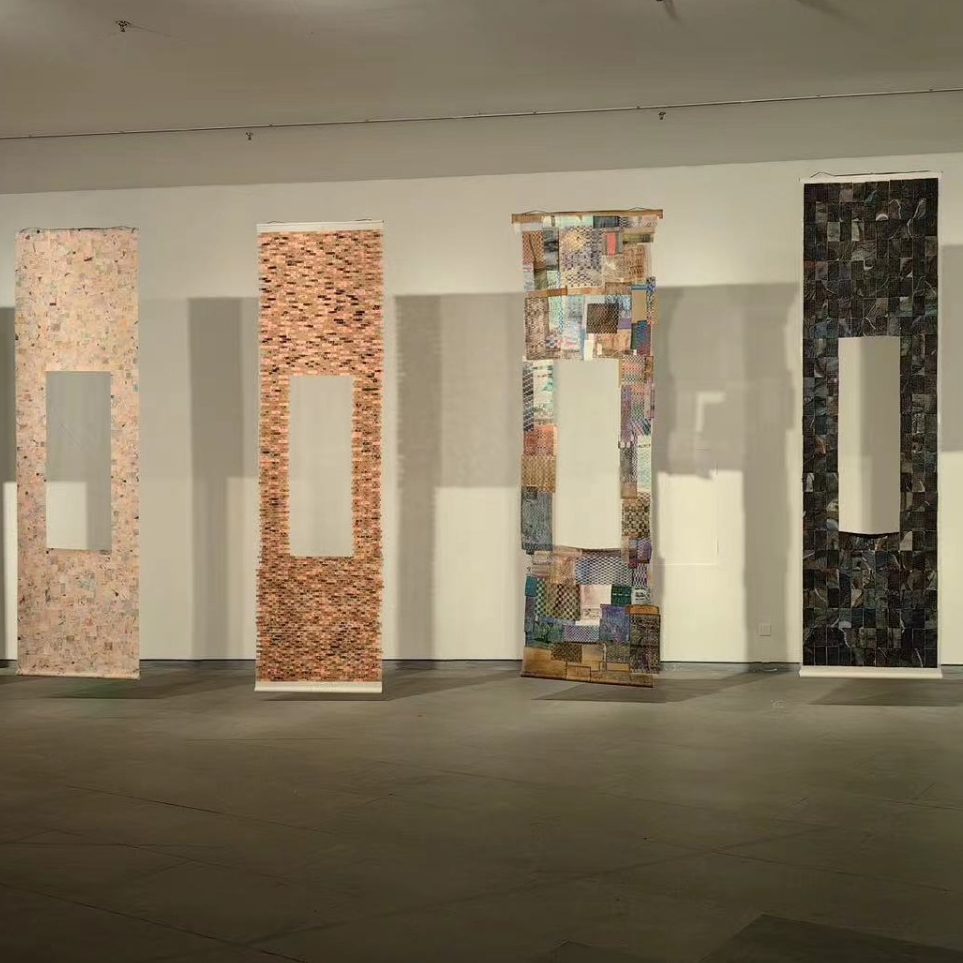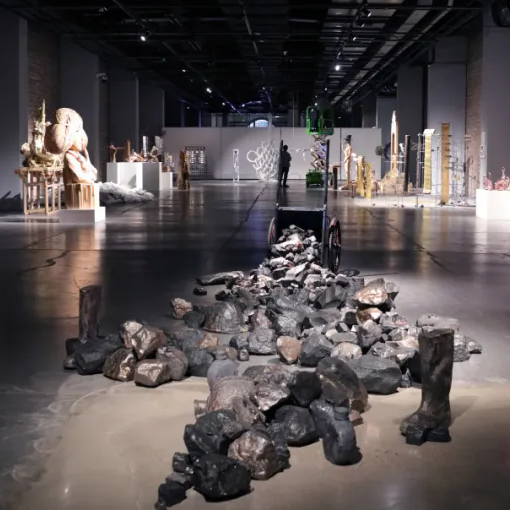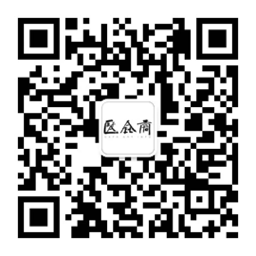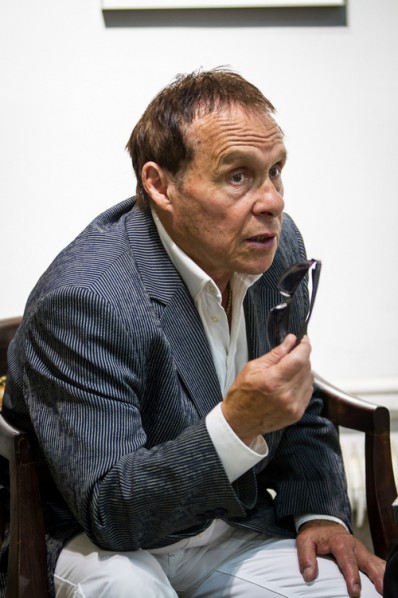
In cooperation with the Embassy of the Czech Republic in Beijing, See+ Gallery announced the opening of the solo exhibition featuring photography by most renowned Czech photographer Jan Saudek on May 25, 2013. Miroslav Ambroz, Curator for this exhibition has chosen representative photographs by Jan Saudek ranging from lyrical and romantic, to erotic and relatively brutal. This is his first solo exhibition in China and it will remain on view until June 30. In an exclusive interview, CAFA ART INFO took the opportunity to talk with the artist about his work.
First of all, as far as we know, you are the most celebrated (and perhaps the most controversial) Czech photographer, you live in the magical city of Prague. Would you talk with us about why photography is so important to you and how did your career start?
Well, I’m not controversial, I’m just a natural man. As for photography, it’s just a way to make a living, for me, I tried many things, to dance, to sing. But do not be afraid, I will not sing, write poetry or be a sportsman, but nothing brought me the money. So I have decided to be a photographer. But I have tried many many crafts.
How did the circumstances, your identity as a Jew, your experience influence your photography?
I’ll tell you the truth, I don’t have any experience, I don’t have any memory, I remember nothing happened last night. I just do things I believe in. Not a single picture has been made for money. The money came but these pictures I made from the heart, just with a deep belief, in what I show. Not a single photograph has been taken for money. So it is probably me, the only thing which makes me the friend of other photographers, I mean professional photographers, many professional photographers work for money, not me. I still work for pleasure. Sometimes, money comes.
In the 1950s, the earlier stage of your career, you created humanistic photography in which man played the dominant role. You told stories in your photographs. Which work do you think can best explain your idea at that time and how did you arrange it?
My idea is that most of the famous photographs in the world have been arranged. The only way is because I was not fast enough to be a reporter, to be a really good photographer, fast...I’ve decided to make my own vault, my own style and I arrange everything, which is lying to people. But I don’t like to lie to people, the result is, the important thing is the result, and I hope in some cases, my photographs are strong enough that you can believe them.
The coming of the 1970s seemed to be a turning point in your career, you began to photograph almost, exclusively indoors.
“Human Body” became a motif in your creation, especially the female body and its metamorphoses. What has inspired you to photograph it in your special way?
Many photographers see the world, so they have many styles, what I have done throughout my life, is try to make a record of my life, most of these ladies, yes, all of them, were my lovers. And so this is the story of my private life told in pictures. Some people write an autobiography with a brush, on the computer, I make it with photographs. But this is the story of my life, nothing else, it is the biography.
How do you comprehend the beauty of nakedness and how do you present it?
I have a deep belief that people are beautiful. I said yesterday in the Czech Embassy that Czech girls are very beautiful, almost all my life I believe that Czech girls are the most beautiful in the world. But I have changed my mind and Chinese girls are even more beautiful, believe me and my girlfriend, she is the big one there. The babies here, I have a small baby even at my age, the babies, Chinese babies, it’s a wonder, it touches my soul because at my age, I have a daughter, not a baby, four years old...In the same way, I should jump into the water, for any child in the world, not only for mine, and which is probably the only wise thing I have learned in my life, to feel the respect of love for the youth of this world. Chinese babies are the most beautiful, you can ask my girlfriend about this, because she is the love of my last children, without innocence, children can be very cool, very tough. Regarding the promise of the future, they are the promise of the future, everything which is younger is really beautiful, but I have to show everything, every moment of our lives, is beautiful.
You once wrote on one of your photographs, “Between men and women a merciless struggle is being waged.” Would you interpret your understanding of the relationship of men and women in your photographs?
This is true. You know there is also the love and passion. The truth is that a woman is so strong that she has depth in her mind, she needs to win, she always wins, it is impossible to win over women, you cannot. They are so strong, they give a life, which man cannot do. It’s something which makes life dramatic. Because it’s a great story, the love within males and females. It’s a great story. Somebody asked me yesterday, why I am so occupied with sex, what I said, this is I think we all own our lives, without sex, we won’t be here. Understand me? We won’t be alive, we’ve been made of the love of two people, we are made from the embrace of two people. And so I consider physical love like the most important thing.
The phenomenon of time also serves as an important theme in your work, how do you think eternal can be achieved through the nostalgic atmosphere by hand-tinting prints.
Photograph is the only way, one and only way to stop time, which we cannot do, tomorrow you will be older but the photograph can stop time for a while, and we can see the results, we can see the people, she is there already, she was my lover too, and she is a model I never saw again. The greatness of photography is in the possibility to stop time, to see the things which we never repeat again. We’ll never see things in the same way again, because tomorrow will be something completely different. And photography is very good in its ability to stop and save time.
May I ask about the dates you wrote at the bottom of your photographs?
Because fifty years ago, in my country, there was the secret police, political police, and they were very severe, always strict against photography, against nudity, even the nude was forbidden. In those days when I was arrested by the police, the curator has seen one. I played a good trick on how to get away from suspicion and I said they are pictures made by my grandfather, actually they were made in the 1970s or even later, and I didn’t have these pictures in those days. After that kind of control in my country, I cannot do what I want, I put the printed date of one hundred years earlier on the back, it’s my style, my traditional way.
Your work has been heavily charged with eroticism or accused of spreading pornography, how do you think of these charges or criticism and how do you deal with it?
I don’t care, because I cannot change it. Never in my life, do I ask for a show, never in my life do I ask for this, please make a book on me, never in my life... I’m a very strange person, I’m waiting until somebody comes to me and tells me, would you like to have interview with me? Would you like to have a book, would you like to take a picture of me? I never, never, never in my life do I ask for anything, but always I get it.
Text edited by Sue Wang/CAFA ART INFOPhoto by Hu Zhiheng/CAFA ART INFO


